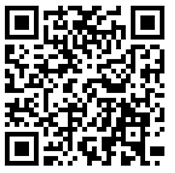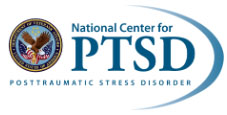Office of Research & Development |
 |

During work hours, we can be reached at 857-364-4198
For Immediate or After Hours Brain Donation please contact: 857-214-0992
Interested in donating?
Please fill out the permission to contact form. Once received by fax or mail, we will contact you directly.
Permission to Contact Form: (Note: This form can be completed electronically, but must be printed and signed/dated with ink.)
- Word version
- PDF Version

PTSD Brain Bank Brochure


Additional Resources
For additional information about ALS please visit the National Institute of Neurological Disorders and Stroke (NINDS)
PTSD can occur after experiencing a traumatic event. A traumatic event is something terrible and scary that you see, hear about, or that happens to you, like:
During a traumatic event, you think that your life or others' lives are in danger. You may feel afraid or feel that you have no control over what is happening around you. Most people have some stress-related reactions after a traumatic event; but, not everyone gets PTSD. If your reactions don't go away over time and they disrupt your life, you may have PTSD.
VA has made a major commitment to understanding and treating PTSD. As part of this commitment, VA funded the National Posttraumatic Stress Disorder Brain Bank (PTSD Brain Bank). The PTSD Brain Bank is a human tissue bank that collects, processes, stores and gives out research specimens for future scientific studies. Veterans and non-Veterans who have been diagnosed with PTSD presently or in the past are eligible to participate. We also accept those without brain disorders. In certain cases, those with other disorders such as major depression may also be eligible, please call to speak with a researcher at (800) 762-6609.
Veterans and non-Veterans who have been diagnosed with PTSD presently or in the past may enroll in the PTSD Brain Bank. In certain cases, those with other mental health conditions such as major depression may be eligible. We also accept those without brain disorders. We hope that anyone interested in supporting PTSD research might consider this donation.
Scientists studying neurological disorders must compare brain tissue donated by people affected by these diseases with tissue from people who are not affected by them in order to understand the causes of these conditions, if you do not have a neurological disease or disorder please click here for information on joining the VA Biorepository Brain Bank.
It is never too soon to enroll in the PTSD Brain Bank. The health information you provide now will support current research, and upon your death, make your tissue donation even more valuable for future research. However, pre-enrollment is not required. Consent can be given by your next-of-kin immediately following death. We encourage interested individuals to talk with their families and friends about their intentions to be a brain donor. Talking about these issues now helps to reduce stress on your family at the time of your death.
 What can I expect if I take part in this study?
What can I expect if I take part in this study? To enroll in this study, you will be asked to review and sign a consent form. In addition to your consent, we will also need the consent of your next-of-kin (e.g., spouse, child, sibling) because this person will need to confirm your decision to donate after your passing. Even after signing the consent forms, you still have the right to withdraw at any time if you so desire. Your VA benefits and your VA health care cannot be influenced in any way by your agreement or refusal to participate.
After signing the consent, we will ask you to complete surveys via mail and telephone about your current health and past health history. These surveys will ask for things like your name, birthdate, sex, education level, and race or ethnic group, as well as details of your military service (if you served). Some questions will ask whether you have been exposed to chemicals at home, work, or if you were in the military. Other questions will ask about your mental health history, including whether you are currently experiencing PTSD symptoms or if you have experienced these symptoms in the past. You will be asked to complete a brief test of memory and concentration. We will ask about the physical and mental health history of you and your family. The initial surveys that you complete upon entry into the study should take about 2 hours total, but this time will be broken up into smaller individual sessions.
 We will update this information every year by telephone or by mail. The telephone call and surveys should take about 30 minutes to complete. From time to time, we will also look at your VA (if you have one) or other medical records to collect information about your health and add that information to the PTSD Brain Bank database so that we can follow your health and care over time. This will not require any of your time.
We will update this information every year by telephone or by mail. The telephone call and surveys should take about 30 minutes to complete. From time to time, we will also look at your VA (if you have one) or other medical records to collect information about your health and add that information to the PTSD Brain Bank database so that we can follow your health and care over time. This will not require any of your time.
All collected information will be labeled with a code that does not identify you directly, and kept confidential as required by law. Study results may be published for scientific purposes, but your records and identity will not be revealed. The PTSD Brain Bank complies with the requirements of the Health Insurance Portability and Accountability Act (HIPAA) of 1996 and its privacy regulations as well as all other applicable laws that protect your privacy.
Your tissue donation, consisting of your brain, spinal cord, and cerebrospinal fluid, will be collected at the time of your death and will not require any surgery or collection procedures at this time. Upon death, your family or someone they designate must call the on-call study researcher. After we receive permission from your next-of-kin to proceed, we will make arrangements for the recovery of your donated organs, including transportation to and from the hospital or facility where the donation will take place. We are responsible for all costs related to your organ donation as well as transportation of your body to and from the site where the donation is recovered. However, we cannot assume the usual costs of the funeral, burial or cremation. If you have questions about VA death benefits please speak with your local benefits representative or visit the Veterans Benefits Administration web page for more information. The procedure will be done professionally and with dignity at the closest VA Medical Center or by medical professionals at another facility if the VA facility is unable to perform this in a timely manner. An open casket viewing is possible after donation if that is your family's wish. If your next of kin requests it, a copy of the pathology report will be provided when it becomes available.
Your donation may help future efforts in PTSD research and treatment. However, taking part in this study will not benefit you directly.
Thank you for thinking about this important issue. We have included some answers to frequently asked questions here. Additional information is presented in our brochure here. We are always willing to answer any questions you or your family may have. During working hours, we can be reached at our toll free number: 800-762-6609, or at our office number: 857-364-4198. After hours, weekends, or holidays please call our 24/7 cell phone for an on-call VABBB researcher at 857-214-0992 if death is imminent.
 The health information that you provide now, while living, will
support research now, and upon your death make your tissue
donation much more valuable to future research.
The health information that you provide now, while living, will
support research now, and upon your death make your tissue
donation much more valuable to future research.
The organs you would donate cannot be used for transplantation; therefore the time for their recovery can be slightly longer. We hope to recover the donated tissue within 24 hours, although the time frame may be longer in some circumstances. The organs will be recovered by medical professionals at the closest equipped VA hospital, or other facility if the VA is unavailable.
By the time your will is read, it will be too late to recover your organ donation. Enrolling now and telling your family that you want to donate is the best way to ensure that your wishes are carried out.
No, we pay for all costs related to your tissue donation, as well as transportation of your body to and from the site where the procedure is done. However, we cannot pay for the usual costs of the funeral, burial, or cremation.
Yes, the donated tissue will be recovered in a respectful manner that will not interfere with an open casket viewing.
Donated tissue is sent to a VA-approved facility for scientific study and storage. Researchers from around the world may request tissue samples to conduct approved research. These requests are reviewed by a committee of established scientists and approved if scientifically sound.
Most religions support organ donation as a charitable act of giving. If this is a concern, you should consult your religious leader.
All your information that we collect will be labeled with a code that does not identify you directly. Information collected by the VABBB will be kept confidential as required by law. The VABBB complies with the requirements of the Health Insurance Portability and Accountability Act (HIPAA) of 1996 and its privacy regulations and all other applicable laws that protect your privacy.
Being an organ donor via your license is a very generous and lifesaving donation to the many people waiting for an organ transplant. However, this does not notify brain banks of your intention to donate your brain. A person intending to make a brain donation must sign up with a brain bank such as the VABBB before death. In cases where a person had wished to be a brain donor but was unable to sign up before death, family members may contact the brain bank to approve the donation as long as it is done immediately after death.
It is important that your family and doctor know your wishes. Talking with your family and your VA doctor about these issues now helps to reduce stress on your family at the time of your death. You or your family may change the decision about donating at any time. If you have more questions, or would like to enroll, please call us at our toll-free number: (800) 762-6609.
The VA Specimen Research and Biobanking Program makes tissue samples available for research on illnesses in Veterans. Researchers can often learn more about illnesses in Veterans by using samples of tissue, blood, urine, and other fluids. These samples are often stored for future studies in biobanks. Biobanks store, process and give out human biological samples for important research studies. These samples are very valuable for research.
The PTSD Brain Bank is a human tissue bank that collects, processes, stores and gives out research specimens for future scientific studies. PTSD researchers are invited to apply for tissue and data collected from Veterans and Non-Veterans with PTSD. It should be noted that tissue from all regions of the brain may not be available due to high demand and/or limited quantity. Regions such as the amygdala, thalamus, hypothalamus and hippocampus may not be available or may only be available as unstained slides from paraffin embedded tissue. Many limited supply regions are already being processed for DNA/RNA sequencing and this data will eventually be available through a data use request.
Tissue Request Forms may be requested from Sean Roth at sean.roth@va.gov.
Investigators are highly encouraged to discuss their requests with the VABBB before submitting an application, by contacting Sean Roth at sean.roth@va.gov.
Timeline and Review Process: Applications may be submitted at any time, and are reviewed monthly.
Application submission:
Regular Projects:
Principal investigators (PIs) who have the necessary preliminary data to support the use of greater numbers of specimens (regular project) should submit a request using the Tissue Request Form. In addition, the guidelines also provide information about numbers and types of specimens that may be requested for regular projects.
Pilot Projects:
Requests for access to tissue for pilot projects are limited to the amounts described in the VABBB Tissue Request Guidelines. Investigators who have pilot projects in which there is limited preliminary data should submit a request using the Tissue Request Form. Applicants lacking experience with human tissue may be required to demonstrate that the proposed experimental technique works in human tissue before the application is accepted. Human tissue testing samples may be acquired from commercial vendors or from the PTSD Brain Bank.
Additional Tissue Requests for Approved Projects:
Principal Investigators that have already been approved for tissue may submit requests for additional samples on the same project by submitting the Tissue Request Short Form. Tissue Request Forms may be requested from Sean Roth at sean.roth@va.gov.
Justification of Tissue Requests:
Applications should be carefully prepared to justify and fully describe the tissue requested. A statistical justification is required to assure that the proposed study is adequately powered to test the hypothesis in question. Sample size and power analyses should be considered before submitting a request. To conserve irreplaceable tissue the VABBB may require investigators to perform pilot studies to demonstrate feasibility before supplying greater numbers of specimens. In certain situations, if a request has been made for highly sought after tissue the PTSD Brain Bank may suggest an alternative tissue.
Review Process:
All applications for access to tissue will be reviewed monthly by a panel of subject matter experts. Final decisions about access will be made on the basis of qualifications of the investigator, scientific merit of the proposed research utilizing the tissue, quantities of tissue requested, statistical issues and availability of tissue.
Material Transfer Agreements:
Investigators will be required to submit signed Material Transfer Agreements (provided by the PTSD Brain Bank) before specimens are shipped for approved requests.
Progress Reports:
Investigators receiving specimens will be required to submit progress reports for all approved projects on a yearly basis.